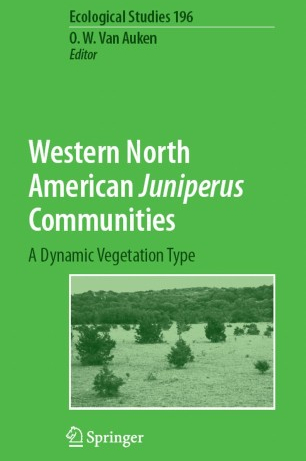
Western North American Juniperus Communities
Publication year: 2008
: 978-0-387-34003-6
Juniperus woodlands and savannas in western North America are both extensive and dynamic, occupying approximately 55 million hectares. Various species of Juniperus have been increasing in density and are expanding into associated grasslands, reducing the size of the grasslands. The reason for the Juniperus expansion is highly debated, but seems to be related to high levels of herbivory, changing fire frequency and probably global change phenomena. Western North American Juniperus Communities addresses various aspects of the biology, ecology, and management of Juniperus woodlands and savannas, by synthesizing past, current, and proposed future research. The book includes information on community distribution, composition, and structure; the effects of alterations in ecosystem processes such as modifications in water budgets; and the impacts of humans, herbivory, and fire on the communities. The book will provide professionals with a solid background in Juniperus ecosystems, enabling them to better understand the communities and manage the communities for maximum sustained productivity and diversity.
: Biomedical and Life Sciences, Savanna, Woody plant, biodiversity, cyclin, ecology, ecosystem, ecosystem processes, environment, forest, land management, nitrogen, seedlings, vegetation, water stress, woody plants, Forestry Management